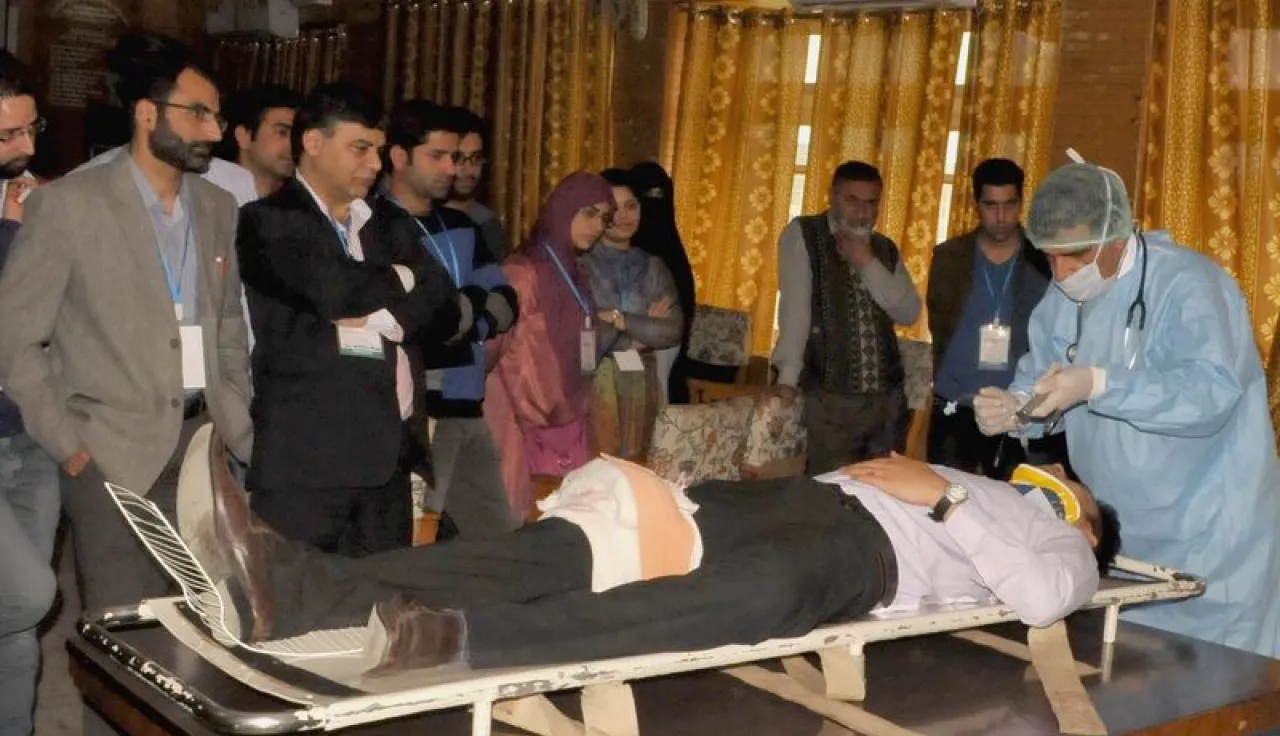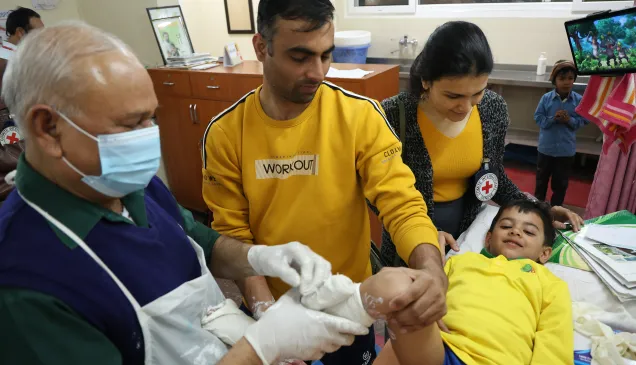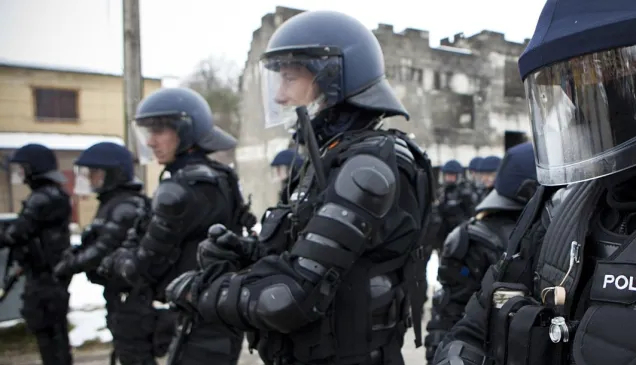Weapon-wounded seminar held for health professionals in Jammu & Kashmir

Buouyed by the conviction that an efficient emergency care service can play a critical role in reducing morbidity and mortality among trauma cases, the health authorities in Jammu & Kashmir State and the ICRC recently organised a two-day Weapon Wounded Surgical Seminar (WWSS) at the University of Jammu, as well as an Emergency Room Trauma Course (ERTC) at the Government Medical College Srinagar for health care professionals. Both courses were aimed at enhancing emergency care preparedness and the response capacity of doctors working in peripheral hospitals in the state.
Dr. Harald Veen, Chief Surgeon at the ICRC, and Dr. Khurshid Iqbal, ICRC ERTC consultant both conducted the courses, with thirty participants attending the WWSS, these include general surgeons, orthopaedic surgeons and anaesthetists from Jammu, Kashmir and Ladakh regions. Some of them were drawn from the J&K Police, Border Security Force, Medical College and the State Health Services. Furthermore, twenty doctors associated with the Government Medical College, Srinagar attended the training on ERTC.
Participants were exposed to how the ICRC manages war wounded patients in situations of limited resources, and the experience of its surgical teams in the handling of such cases under standardized conditions. The need for health professionals to abide by accepted surgical standards in the management of weapon wounded trauma cases, especially in the peripheral hospitals, was also emphasised.
Participants exchanged best practices in surgical procedures and standards as obtained in their institutions or context. They also highlighted the challenges faced while managing trauma cases.
The ICRC has a long experience in the provision of immediate assistance to trauma victims using simple, but scientifically adequate and appropriate means. The ERTC course is designed to train the doctors in standardized diagnostics and therapeutic procedures which should be applied upon the arrival of the patient in the hospital Emergency Room. It does not deal with what is done once the patient is referred to the surgical or orthopedic or ICU department (definitive care).
The ERTC course provided participants with the essential skills of examining and resuscitating a trauma case. It encouraged doctors to follow a certain protocol (step-by-step approach) while examining a patient. By doing so the doctors are unlikely to overlook injuries which could prove fatal if not treated in time.
Besides a series of lectures there were practical demonstrations on how to examine airways and ventilation, head and spinal trauma, limb injuries, etc., followed by simulating diagnostic exercises.
The ICRC has collaborated with Government health facilities in J&K over the past five years to strengthen the capacity of these institutions to respond to emergencies. In attendance was Mr. Bali Bhagat, the Hon'ble Minister for Health and Medical Education, Jammu and Kashmir. He had inaugurated the WWSS seminar, and this marked the first time it would be organised in J & K. At the end of the training, most of the participants opined that it has been of immense benefit and will contribute to improving their skills in the treatment of weapon wounded trauma patients.



